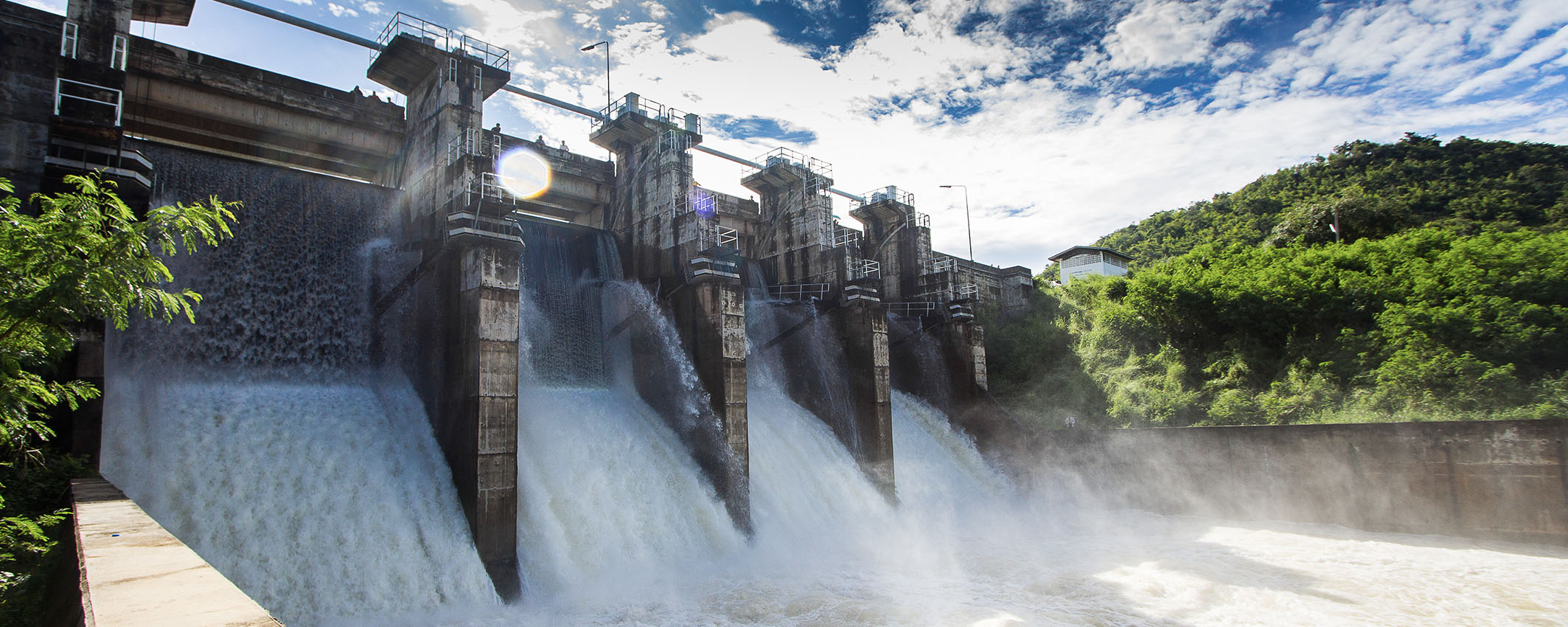 |
CCST9074 Science, Technology and Big Data
|
Course Description
Water is essential for sustaining human life. Its true value, however, is not fully reflected in its “price tag” in many economies, so long-term water sustainability has been often compromised. Learning to strengthen interdisciplinary dialogues and to nurture intersectoral collaborations are essential to achieving global and local water sustainability goals. In order to help us better address this dilemma by creating new practices, this course will provide students with a comprehensive understanding of the technologies, policies, and institutional frameworks relating to water in a cross-cultural and cross-sectoral context.
The contents and the pedagogical approach of this course are purposefully designed to:
- provide students with a comprehensive understanding of the most pertinent technological and policy issues relating to global water resources;
- evaluate how different cultures signify different attitudes towards water;
- equip students with knowledge about water resources so that they will reflect on their role as a global citizen; and
- enhance students’ communication skills for effective collaboration with people of diverse backgrounds and values.
[A field trip will be organized during the Reading Week.]

Course Learning Outcomes
On completing the course, students will be able to:
- Understand the complexity of the issues related to global water security.
- Apply qualitative and quantitative methods to conduct interdisciplinary research in water-related issues.
- Develop evidence based framework for policy making.
- Evaluate the role of social, economic and cultural factors in water technology and policy development.
- Polish writing and communication skills for collaboration and professional quality presentations.
Offer Semester and Day of Teaching
Second semester (Wed)
Study Load
| Activities | Number of hours |
| Lectures | 24 |
| Tutorials | 10 |
| Fieldwork / Visits | 3 |
| Reading / Self-study | 45 |
| Assessment: Assignments | 23 |
| Assessment: Presentation (incl preparation) | 15 |
| Total: | 120 |
Assessment: 100% coursework
| Assessment Tasks | Weighting |
| Tutorial participation | 10 |
| Fieldwork report | 20 |
| Case study | 40 |
| Oral presentation | 10 |
| Journal writing | 20 |
Required Reading
Selected chapters from the following reports and books:
- 2030 Water Resources Group. (2009). Charting Our Water Future: Economic Frameworks to Inform Decision-Making. [pp. 2-22]
- Bates, B. C., Z. W. Kundzewicz, S. Wu, & J. P. Palutikof. (Eds.). (2008). Climate Change and Water. Technical Paper of the Intergovernmental Panel on Climate Change. IPCC Secretariat, Geneva. [Chap. 3]
- Civic Exchange & ADM Capital Foundation. (2017). The Illusion of Plenty: Hong Kong’s Water Security, Working towards Regional Water Harmony. Hong Kong: Civic Exchange. From https://civic-exchange.org/wp-content/uploads/2017/05/Water-Report-English-final.pdf [Chaps. 2 & 3 (pp. 18-74)]
- OECD. (2016). Water Governance in Cities. Paris: OCED Publishing. From https://read.oecd-ilibrary.org/governance/water-governance-in-cities_9789264251090-en#page1 [Chaps. 1 & 2 (pp. 15–53)]
- Sedlak, D. (2015). Water 4.0: The Past, Present, and Future of the World’s Most Vital Resource. Yale University Press. [pp. 1-25, 187-216, 238 – 272]
- Viessman, W. Jr., Hammer, M. J., Perez, E. M., & Chadik, P.A. (2009). Water Supply and Pollution Control (8th ed.). Pearson. [Sections 3.1, 4.2, 8.3, 8.4, 8.6, 9.1, 9.2, 9.4, 9.5.]
- Water Supplies Department. (2008). Total Water Management in Hong Kong: Strategy for Sustainable Water Supply in Hong Kong. Hong Kong: Water Supplies Department. From https://www.wsd.gov.hk/filemanager/en/content_1171/TWM.pdf
- World Bank Group 2016. High and Dry: Climate Change, Water and the Economy. World Bank, Washington, DC. [Chaps. 1 & 2 (pp. 1–22)] From https://openknowledge.worldbank.org/handle/10986/23665
- World Economic Forum. (2011). Water Security: The Water-Food-Energy-Climate Nexus(1st ed.). Island Press. [pp. 204- 224]
- World Health Organization. (2017). Climate-resilient Water Safety Plan: Managing Health Risks Associated with Climate Variability and Change. [pp. 24-45]
Peer-reviewed articles:
- Feingold, D., Koop, S., & van Leeuwen, K. (2018). The City Blueprint approach: Urban water management and governance in cities in the U.S. Journal of Environmental Management, 61, 9-23.
- Hartley, K., Tortajada, C., & Biswas, A. K. (2018). Political dynamics and water supply in Hong Kong. Environmental Development, 27, 107-117.
- Lee, F., & Moss, T. (2014). Spatial fit and water politics: managing asymmetries in the Dongjiang River basin. International Journal of River Basin Management, 12, 329-339.
- Lee, N. K. (2014). Political borders and Hong Kong’s water supply system. International Journal of Urban and Regional Research, 38, 903-921. From https://doi.org/10.1111/1468-2427.12060
- Li, W. -W., Yu, H. -Q., Rittmann, B. E. (2015). Reuse water pollutants. Nature, 528, 29-31.
- Pahl-Wostl, C., Tabara, D., Bouwen, R., Craps, M., Dewulf, A., Mostert, E., Ridder D., & Tailieu, T. (2008). The importance of social learning and culture for sustainable water management. Ecological Economics, 64(3), 484-495.
- Sauri, D. (2013). Water Conservation: Theory and evidence in urban areas of the developed world. Annual Review of Environment and Resources, 38, 227-248.
- Wang, R. Y., Ng, C. N., Lenzer Jr, J. H., Dang, H., Liu, T., & Yao, S. (2017). Unpacking water conflicts: A reinterpretation of coordination problems in China’s water-governance system. International Journal of Water Resources Development, 33(4), 553-569.
Course Co-ordinator and Teacher(s)
| Course Co-ordinator | Contact |
| Professor K. Shih Department of Civil Engineering, Faculty of Engineering |
Tel: 2859 1973 Email: kshih@hku.hk |
| Teacher(s) | Contact |
| Professor X.Y. Li Department of Civil Engineering, Faculty of Engineering |
Tel: 2859 2659 Email: xlia@hku.hk |
| Dr. F.Y.S. Lee Department of Geography, Faculty of Social Sciences |
Tel: 3910 2403 Email: leey@hku.hk |

